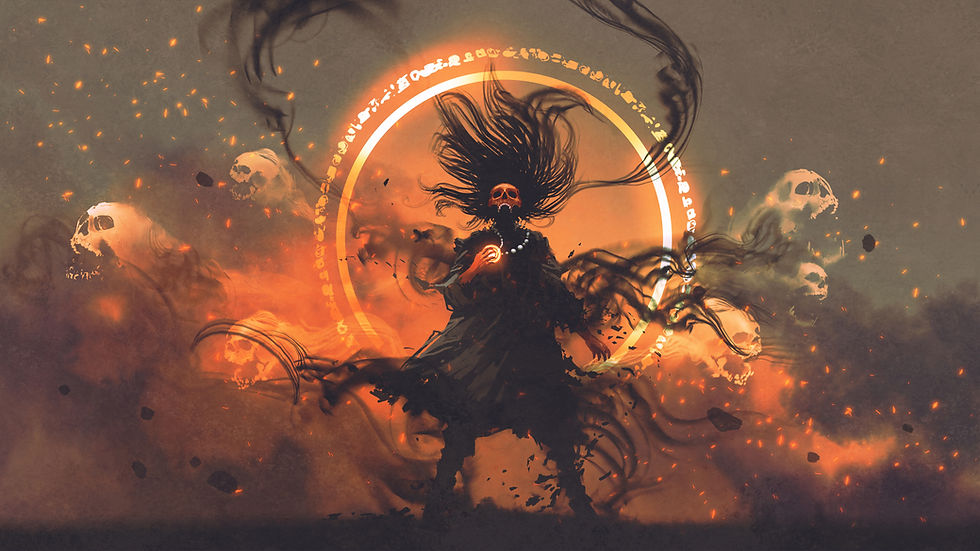The intricate relationship between spirituality and drug usage has woven its tapestry through the annals of human experience. Recent times have seen the emergence of Marijuana as a spiritual conduit within specific Rastafarian circles. However, this perspective diverges sharply from the principles championed in Biblical Christianity, which places sobriety at the heart of spiritual elevation. This article delves into the potential downsides of endorsing marijuana use for spiritual purposes, contrasting it with the ethos of Biblical Christianity. Additionally, the significance of asceticism overindulgence will be explored, alongside reflections gleaned from Aleister Crowley's spiritual endeavours, including observations from the documentary "Aleister Crowley: The Wickedest Man In The World."
Promoting Marijuana as a Spiritual Practice in Rastafarianism: Certain branches of Rastafarianism embrace Marijuana as a sacrament, a doorway to connect with the divine. This perspective emerges from a reverence for the Earth and pursuing personal liberation. Rastafarian literature frequently references the use of "ganja" to attain elevated states of awareness and establish a link with the divine. However, this approach's spiritual implications warrant closer examination.
Biblical Christianity's Emphasis on Sobriety: Biblical Christianity rests on the foundation of sobriety and self-mastery. Passages such as 1 Peter 5:8 ("Be sober-minded; be watchful. Your adversary the devil prowls around like a roaring lion, seeking someone to devour.") and 1 Corinthians 6:19-20 ("Or do you not know that your body is a temple of the Holy Spirit within you, whom you have from God? You are not your own...") underline the essential nature of mental clarity and treating one's body as a sanctified vessel for the Holy Spirit. Although Christianity does not explicitly mandate complete abstinence from substances, it champions moderation and self-discipline.
Divergent Views within Christian Denominations:
Evangelicals and Pentecostals (Emphasis on Sobriety): Within Evangelical and Pentecostal circles, sobriety is emphasised as a means to remain vigilant against spiritual and moral pitfalls. These denominations often advocate for abstaining from substances that could impair one's judgment or hinder spiritual growth. While moderation is acknowledged, the central tenet remains steadfast: maintaining a clear and sober mind for a closer connection with the divine.
Orthodoxy and Catholicism (Emphasis on Moderation): In Orthodox and Catholic traditions, moderation is often endorsed over outright abstinence. These denominations recognise the value of enjoying the gifts of creation in moderation while upholding self-control. While sobriety remains essential during religious rituals like the Eucharist, the broader perspective encompasses a balanced approach to enjoying life's pleasures.
Asceticism vs. Indulgence: The rift between Rastafarianism and Christian principles becomes most pronounced when contrasting asceticism with indulgence. Ascetic practices entail self-denial, often to achieve spiritual growth and enlightenment. Conversely, indulgence, encompassing drug use and hedonistic behaviours, can obstruct spiritual progress. The Rastafarian endorsement of Marijuana as a spiritual instrument may inadvertently guide adherents towards indulgence, diverting from disciplined asceticism.
Aleister Crowley's Perspective and the Documentary: Aleister Crowley, a prominent figure in the realm of mysticism and the occult, advocated indulgence as a conduit to attain spiritual enlightenment. Embracing the philosophy of "Do what thou wilt shall be the whole of the Law," Crowley advocated breaking societal norms in favour of one's desires. He engaged extensively in drug use and hedonistic rituals to access altered states of consciousness. Nevertheless, Crowley's perspective starkly contrasts both Rastafarian teachings and the principles of Biblical Christianity. In the documentary "Aleister Crowley: The Wickedest Man In The World," viewers gain insight into Crowley's journey and the evolution of his beliefs. It is revealed that in the later years of his life, Crowley experienced profound remorse and shame, referring to himself as a "coward" and a "wastrel." This introspection sheds light on the potential consequences of prioritising sensory experiences over authentic spiritual progression.
While the advocacy of Marijuana as a spiritual tool finds roots in specific interpretations of Rastafarianism, it contrasts the core values of Biblical Christianity. Christianity underscores sobriety, self-discipline, and ascetic devotion as avenues for connecting with the divine. The quest for altered states of consciousness traverses diverse spiritual traditions, demanding discernment to distinguish practices that nurture genuine spiritual growth from those that propagate detrimental indulgence. As Jesus said in Matthew 7:13-14, "Enter through the narrow gate. Wide is the gate, and broad is the road that leads to destruction, and many enter through it. However, small is the gate and narrow the road that leads to life, and only a few find it." In pondering these words, one wonders whether this caution can be transposed across hermeneutical or contextual boundaries in Biblical scholarship to address alcohol and drug taking. Ultimately, a deep understanding of a belief system's theological foundations and principles is imperative when evaluating the role of substances in pursuing spiritual advancement.

